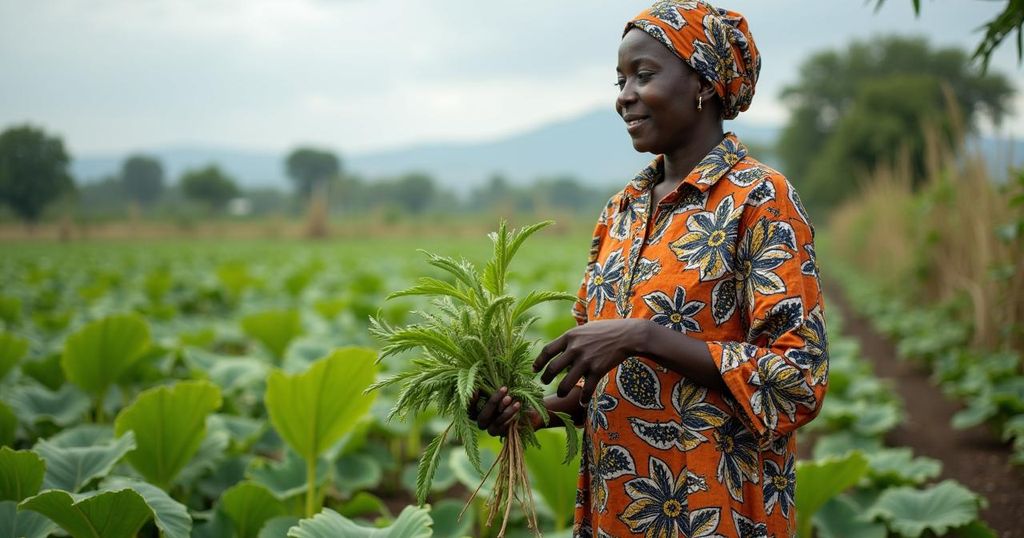African Development Bank Allocates $34.8 Million to Strengthen Climate Resilience in Malawi and Zimbabwe

The African Development Bank has approved $34.8 million in grants to bolster climate resilience for vulnerable communities in Malawi and Zimbabwe. This funding will enhance institutional capacities for disaster risk management, promote index-based crop insurance, and provide timely financial support in response to climate-related disasters. The initiative aligns with the Bank’s strategic priorities and aims to foster sustainable livelihoods and economic diversification in both nations.
The African Development Bank (AfDB) has sanctioned the allocation of $34.8 million in grants aimed at enhancing climate resilience and adaptation strategies for vulnerable populations in Malawi and Zimbabwe. This funding is part of the Bank Group’s Africa Disaster Risk Financing (ADRiFi) initiative and is channeled through the Mitigating Fragility through the Africa Disaster Risk Financing Programme in Southern Africa Project. The primary goal of this initiative is to augment institutional capacities for preparing for and managing climate-related risks. Furthermore, the project seeks to enhance financial mechanisms to shield against climate disasters through sovereign risk transfer solutions and the promotion of index-based crop insurance to protect against drought and other agricultural production risks at the micro-level. Both Malawi and Zimbabwe face considerable challenges in managing climate risks, particularly given their vulnerability to extreme weather events such as droughts, floods, and tropical storms. To address these challenges, the initiative highlights the critical need for strengthening disaster risk management systems, enhancing early warning frameworks, and improving institutional arrangements for effective climate preparedness and resilience. As part of the project, insurance payouts will provide timely financial support to mitigate the economic impacts of climate-related disasters, thereby protecting households and enterprises from potential poverty or financial ruin. The program is expected to encourage behavioral changes among beneficiaries, promoting investments in climate-resilient income-generating activities and savings for future premiums on insurance. This initiative builds upon the achievements of the ADRiFi program and leverages partnerships that have fortified the financial resilience of both nations. In addition, it is noteworthy that during the drought season induced by El Niño in 2024-25, the African Risk Capacity—an essential partner of the AfDB—disbursed over $45 million to aid farmers adversely affected by drought, providing vital food assistance and recovery support to help communities surmount these challenges. This project aligns with the Bank’s “High 5 Priorities,” particularly concerning the focus on enhancing food security in Africa and improving the living standards of its citizens. It also correlates with the Bank’s ten-year strategy (2024-2033) and supports Malawi’s strategic objectives that emphasize economic diversification via investments in agricultural infrastructure and value chains.
The African Development Bank Group plays a crucial role in supporting African countries in managing climate risks, particularly those relating to severe weather phenomena that adversely impact vulnerable communities. With the increasing prevalence of climate-related disasters such as droughts, floods, and storms, the AfDB’s initiatives focus on building resilience and adaptive capacities in affected nations like Malawi and Zimbabwe. The ADRiFi program is designed to provide financial instruments and support systems to better equip these countries in handling disaster risks and fostering sustainable livelihoods. The necessity for enhanced disaster risk management is underscored by the ongoing challenges faced by these nations in dealing with the economic repercussions of climate-driven events.
In conclusion, the approval of $34.8 million in grants by the African Development Bank marks a significant step forward in strengthening climate resilience in Malawi and Zimbabwe. The initiative aims not only to provide immediate financial protection against climate-related disasters but also to foster long-term sustainable practices among vulnerable communities. By enhancing disaster risk management systems and promoting behavioral changes towards climate resilience, this project holds the potential to mitigate the adversities faced by these nations as they contend with the growing impacts of climate change.
Original Source: www.reinsurancene.ws






